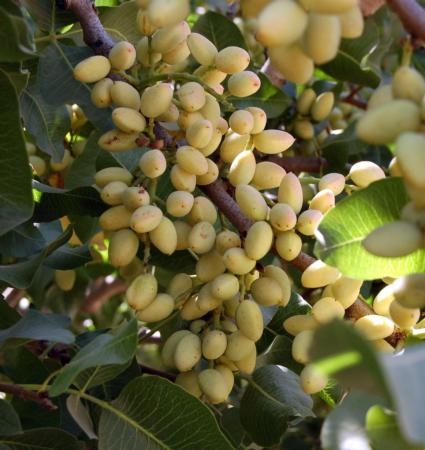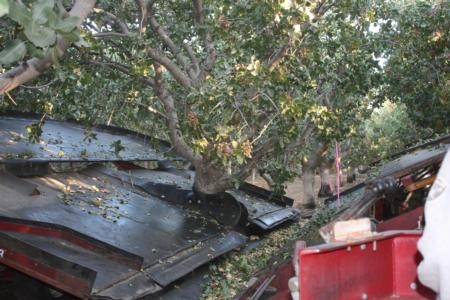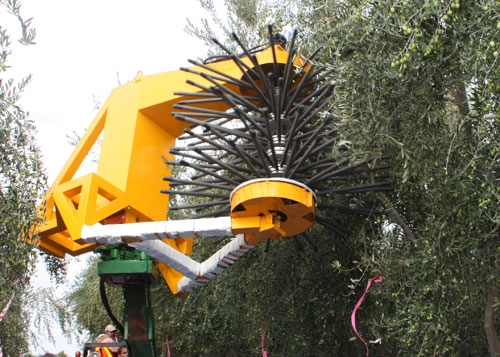
Tension is rising. In these last hot days of August, as the nuts reach maturity, the shells must split. If too many of them don’t, the harvest will be much less profitable, because it’s hard to make a natural-looking split in a pistachio shell with a machine, and unsplit pistachios bring a lower return. Growers are watching the split percentages carefully; wait too long for the highest number and navel orange worms have a larger window of opportunity to lay eggs along the sutures.
Pistachio orchards are harvested mechanically, and the machines are generally owned by contractors, though a large farm may have its own. As soon as the first machine enters the first orchard — the greatest acreage is on the west side of the San Joaquin Valley, around Bakersfield — a race begins.
“It’s chaotic,” says Ferguson. For more than 15 hours every day, beginning before dawn and finishing at dark, the harvesters speed through tunnels of dust and noise up and down orchard rows, followed by bank-out wagons that must get the nuts to the processing plant for drying before the day is out. Each wagon holds 55,000 pounds of pistachios. Left too long in the heat, under the weight of such a load, the pink hulls (each nutshell is within a hull) degrade and stain the shells a darker shade, which lowers the nuts’ value. The California pistachio industry prides itself on producing a large, naturally split, light shelled nut with no artificial splitting or bleaching.
The race gets more fraught each year because contractors have significantly more and more acreage to harvest within the six-week harvest season. Ferguson calls pistachio the “single most successful plant introduction in the 20th century.” The California crop has grown from zero to approaching a quarter million acres in 40 years.


Her colleagues at UC Davis are breeding varieties with a more reliable split and a very early or very late harvest date to spread out the season. Meanwhile, the chaos goes on. This year, because of the cool spring, Ferguson suspects the nuts will split over an extended time period, so growers may well decide to harvest once, then a few weeks later get the harvesters back for a second time.
See a tree shaker harvesting pistachio nuts below. (Video provided by Coe Orchard Equipment.)
Attached Files: